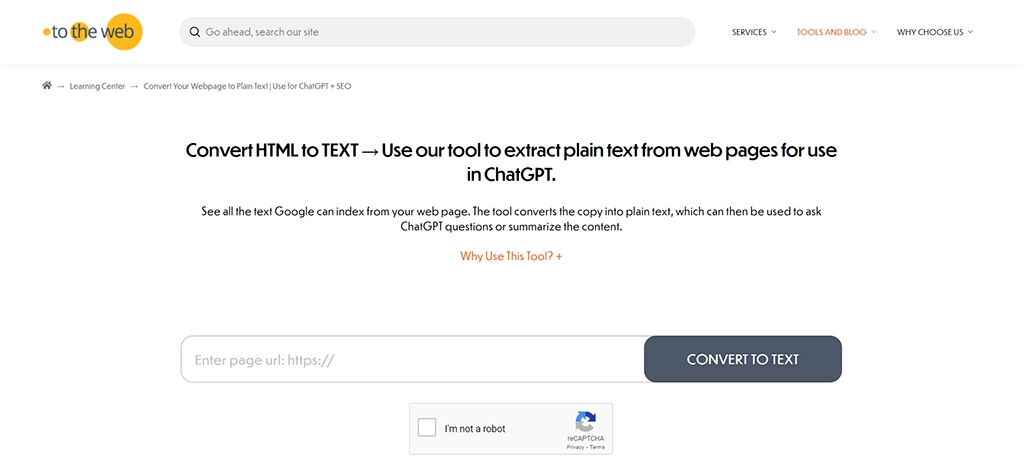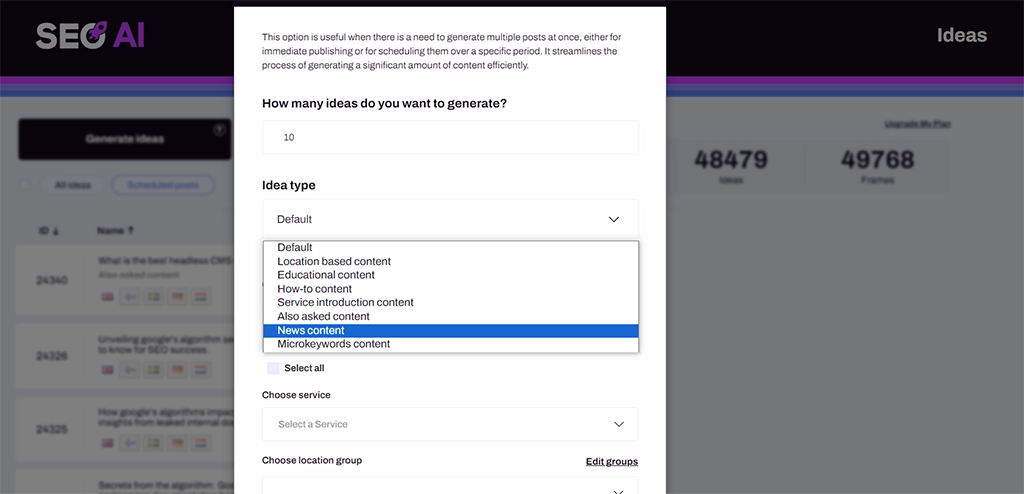Key Insights: What You’ll Learn About AI News Summarization
- AI news summarization uses advanced algorithms to condense lengthy articles into digestible snippets within seconds. This technology employs natural language processing to identify key information and deliver core insights efficiently.
- The main benefits include significant time savings, objective reporting free from human bias, and cost reduction for media companies. However, limitations exist in capturing nuance, context, and complex narratives that require human understanding.
- Leading AI tools like OpenAI’s GPT-5, SummarizeBot, and SMMRY offer varying levels of accuracy, speed, and language support. The choice depends on your specific needs for precision, user-friendliness, and multilingual capabilities.
- Real-time AI monitoring can detect breaking news across thousands of sources simultaneously, providing personalized alerts based on your interests. This proactive approach transforms news consumption from reactive to strategic decision-making.
- The future lies in hybrid approaches combining AI efficiency with human editorial oversight for optimal results. This collaboration preserves journalistic integrity while leveraging technology’s speed and consistency advantages.
How AI-Generated News Summaries Work
AI-generated news summaries function like an advanced digital research assistant that reads entire articles and distills them into concise, digestible snippets within seconds. These intelligent summarization tools employ cutting-edge machine learning algorithms, natural language processing (NLP), transformer models, and deep learning neural networks to analyze news content, identify key facts, extract main themes, and generate accurate summaries. The technology processes thousands of words in milliseconds by recognizing semantic relationships, contextual importance, factual hierarchies, and sentiment analysis—delivering core information efficiently while maintaining journalistic accuracy, context, and editorial integrity for modern news consumption.
Leading news platforms are already harnessing the power of AI to offer rapid, precise news summaries, showcasing the technology’s capacity to significantly improve the way we consume news.
How to Summarize a News Article with AI
Summarizing a news article with AI involves using intelligent algorithms that can understand the main points and context of the text. Here are practical steps and example prompts to guide you:
- Choose an AI Tool: Select an AI summarization tool such as OpenAI’s GPT-5, SummarizeBot or SMMRY
- Input the Article: Copy and paste the full text of the news article into the tool’s interface.
- Set Parameters: Specify the desired length of the summary. For example, you might want a summary that is 3-5 sentences long.
- Generate the Summary: Click the ‘Summarize’ or ‘Send’ button to let the AI process the text.
Example Prompt:
“Summarize the following article in 5 sentences: [Insert full text of the news article here].”
The AI will then generate a concise summary that highlights the key facts and themes, which can be used for quick reference or to gain an overview of the article without reading it in full.
How to Extract Content from a News Article Page
Extracting content from a news article page is a critical step before summarization. This process, known as web scraping, involves using tools to automatically collect data from websites. Here are three example tools capable of doing this:
- Beautiful Soup: A Python library for pulling data out of HTML and XML files.
- Scrapy: An open-source and collaborative web crawling framework for Python.
- Octoparse: A no-code web scraping tool that allows you to extract data from websites without programming skills.
- Totheweb: a super fast and easy to use scraping tool

The Benefits of Using AI for News Summarization
When you tap into AI for news summaries, you’re not just saving time; you’re embracing a new level of objectivity, democratizing access to information, and slashing operational costs for media companies. AI-generated summaries provide you with quick overviews that cut through the noise, sidestep human bias, and open up the world of news to a broader, more diverse audience.
Comparative Analysis of AI News Summary Tools
Choosing the right AI news summary tool can be challenging given the variety of options available. Below is a comparison table that highlights the key features, pros, and cons of 10 popular AI news summary tools to help you make an informed decision.
| Tool | Accuracy | Speed | Language Support | User-Friendliness | Pros | Cons |
|---|---|---|---|---|---|---|
| OpenAI GPT-5 | Exceptional | Fast | Multiple Languages | Moderate | Highest accuracy, advanced reasoning | Requires technical knowledge |
| SummarizeBot | Moderate | Moderate | Multiple Languages | High | Easy to use, multi-platform support | Moderate accuracy |
| SMMRY | Moderate | Fast | English Only | High | Simple interface, quick summaries | Limited language support |
| QuillBot | High | Fast | Multiple Languages | High | Accurate, user-friendly | Subscription required for full features |
| Resoomer | Moderate | Moderate | Multiple Languages | High | Good for educational content | Moderate accuracy |
| TLDR This | Moderate | Fast | English Only | High | Quick and easy summaries | Limited language support |
| TextTeaser | Moderate | Moderate | English Only | Moderate | Customizable summaries | Requires API integration |
| News Summarizer | High | Fast | Multiple Languages | High | Accurate, supports various formats | Subscription required |
| AutoSummarizer | Moderate | Moderate | English Only | High | Easy to use | Limited features |
| AI Writer | High | Fast | Multiple Languages | Moderate | Highly accurate, versatile | Subscription required |
This comparison table provides a snapshot of the capabilities of each tool, helping you to choose the one that best fits your needs. Whether you prioritize accuracy, speed, language support, or user-friendliness, this guide aims to assist you in making an informed decision.
The Limitations of AI-Generated News Summaries
However, it’s not all smooth sailing. Despite their impressive advantages, AI-generated summaries can sometimes miss the mark by oversimplifying intricate stories, introducing inaccuracies, or lacking the human touch that adds depth and perspective to reporting. There’s also the risk that the relentless pursuit of speed could overshadow the importance of thorough, in-depth journalism.
Market Leaders in AI News Summarization
As we look towards 2025, several companies are leading the charge in providing top-tier AI news summary solutions.
- OpenAI, with its groundbreaking GPT-5 model, continues to set the benchmark for natural language processing and summarization capabilities, offering unprecedented accuracy and contextual understanding.
- SummarizeBot is another key player, known for its robust multi-language support and integration with various platforms.
- SMMRY, with its focus on simplicity and speed, remains a favorite for users seeking quick and efficient summaries.
Our own solution is poised to revolutionize the market by offering a unique feature: the ability to create news articles and summaries with the click of a button, simply by adding the URL sources. This innovative approach will scrape the content and generate summaries in the tone of voice of our customers, ensuring a personalized and seamless experience.

By combining cutting-edge technology with user-centric design, we aim to provide the most intuitive and effective AI news summarization tool available.
The Future of AI-Generated News Summarization in 2025
As we approach 2025, AI-driven news summaries will significantly transform content delivery, enabling businesses to leverage highly personalized, targeted information tailored precisely to individual user preferences and interests.
Multilingual and multimodal summarization capabilities will empower companies to reach broader global audiences, fostering enhanced engagement across diverse markets. Industry-specific digests generated by AI will equip businesses with actionable insights, streamlining strategic decision-making processes and improving competitive advantage.
Furthermore, the synergistic collaboration between AI and human journalists will redefine the news landscape, enabling organizations to deliver timely, trustworthy, and highly relevant content to their audiences.
By adopting AI-powered news summarization solutions, companies can enhance user experience, boost audience retention, and effectively position themselves as thought leaders within their industries.
Practical Applications and User Experiences with AI Summarizers
AI summarizers are revolutionizing various industries by enhancing efficiency and productivity. In the media industry, they are used to quickly generate news briefs that keep audiences informed without overwhelming them with information.
Educational institutions leverage AI summarizers to help students grasp complex topics by breaking down lengthy texts into digestible summaries. In the corporate world, businesses use these tools to summarize reports and documents, saving time and resources.
The Impact of AI-Generated News Summaries on Journalism
AI-generated news summaries are poised to revolutionize the speed and reach of news dissemination. Yet, they also prompt us to consider the implications of job automation and the importance of weighing their pros and cons carefully.
One critical aspect to consider is the potential for AI-generated summaries to influence public perception and understanding of current events. While AI tools can efficiently condense large volumes of information, there remains the risk of oversimplification, bias, or errors going unnoticed. Human oversight remains essential to ensure that automated summaries accurately capture nuance and context, safeguarding journalistic integrity and accountability.
Moreover, the rise of automated news summaries underscores the necessity for journalists and media professionals to adapt their roles.
Rather than viewing AI as a threat, journalists can leverage its capabilities to handle routine summarization tasks, allowing more focus on investigative reporting, in-depth analysis, and storytelling that requires human judgment and creativity.
At least, this is what I think.
This strategic collaboration between AI and human journalists not only enhances the overall quality of journalism, but also fosters innovation and resilience within the industry.
Ethical Concerns Around AI-Generated News Summaries
As we embrace the convenience of AI in journalism, we must also navigate the ethical minefield it presents. Issues such as potential bias, the displacement of jobs, privacy, and the need for transparency are critical to ensuring that AI-generated news summaries are utilized in a manner that is ethical and responsible.
Comparing AI-Generated News Summaries to Human-Written Summaries
Both approaches have their unique strengths and weaknesses, and understanding these can help in making an informed decision. Let’s delve deeper into the nuances of each method.
Speed and Efficiency
AI-Generated Summaries:
One of the most significant advantages of AI-generated summaries is their unparalleled speed. Advanced algorithms can process vast amounts of text in mere seconds, producing concise summaries almost instantaneously. This efficiency is particularly beneficial for businesses and individuals who need to process large volumes of information quickly.
Human-Written Summaries:
While human writers cannot match the speed of AI, they bring a level of thoroughness and attention to detail that machines often lack. Crafting a well-written summary takes time, but the result is usually more polished and tailored to the specific needs of the audience.
Consistency and Reliability
AI-Generated Summaries:
AI excels in maintaining consistency across multiple summaries. Once programmed, an AI can produce uniform results without the variability that might come from different human writers. This consistency is crucial for brands that require a standardized tone and style across all their content.
Human-Written Summaries:
Human writers, on the other hand, can sometimes introduce variability in tone and style. However, this variability can also be a strength, allowing for more personalized and contextually appropriate summaries. Experienced writers can adapt their style to suit different audiences and purposes, something AI still struggles with.
Nuance and Context
AI-Generated Summaries:
Despite advancements in natural language processing, AI-generated summaries often fall short in capturing the subtle nuances and context of the original text. Machines can struggle with understanding idiomatic expressions, cultural references, and the emotional undertones that a human writer would naturally grasp.
Human-Written Summaries:
Human writers excel in this area. They can interpret and convey the underlying meaning, tone, and context of the original content, ensuring that the summary is not just a condensed version but a meaningful representation of the source material. This ability to capture nuance is particularly important for complex or sensitive topics.
Cost and Scalability
AI-Generated Summaries:
From a cost perspective, AI-generated summaries are often more economical in the long run. Once the initial investment in the technology is made, the marginal cost of producing additional summaries is relatively low. Moreover, AI can easily scale to handle increasing volumes of content without a corresponding increase in cost.
Human-Written Summaries:
Human writers, while potentially more expensive, offer a level of quality and insight that can justify the higher cost. However, scaling human-written summaries can be challenging and costly, as it requires hiring and training additional writers to meet growing demand.
The Blended Approach: Combining AI and Human Insight
Given the distinct advantages and limitations of both AI-generated and human-written summaries, a blended approach might offer the best of both worlds. By leveraging the speed and consistency of AI to produce initial drafts, and then refining these drafts with the insight and nuance of human editors, organizations can achieve high-quality summaries efficiently.
Workflow Example:
- Initial Draft by AI: Use AI to generate a quick, consistent summary of the content.
- Human Refinement: Have a human editor review and refine the AI-generated summary, adding context, nuance, and ensuring accuracy.
- Final Review: Conduct a final review to ensure the summary meets the desired quality standards and is tailored to the target audience.
In conclusion, both AI-generated and human-written summaries have their place in the content creation ecosystem. By understanding their respective strengths and weaknesses, and considering a blended approach, organizations can optimize their summarization processes to achieve both efficiency and quality.
The Potential for AI-Generated News Summaries in Personalized News Delivery
AI has the extraordinary ability to tailor news summaries to your unique preferences, thereby boosting user engagement and providing publishers with targeted opportunities to connect with their audience. By analyzing your reading habits, interests, and even the time you spend on different types of content, AI can curate a personalized news feed that keeps you informed and engaged.
This level of customization not only enhances the user experience but also ensures that you receive the most relevant and timely information, making your news consumption more efficient and enjoyable. Moreover, the integration of AI in news delivery goes beyond just personalization.
Advanced algorithms can sift through vast amounts of data in real-time, identifying trending topics and breaking news faster than traditional methods.
This capability allows news platforms to provide up-to-the-minute updates, ensuring that you are always in the loop with the latest developments.

Additionally, AI can help in verifying the authenticity of news sources, reducing the spread of misinformation and enhancing the credibility of the content you consume. As a result, AI-driven news summaries not only cater to your individual preferences but also contribute to a more informed and discerning audience.
Ready-to-Use AI Prompts for News Summarization
Transform your news consumption with these battle-tested AI prompt templates. Copy, paste, and customize these prompts with your preferred AI tool to generate professional-quality news summaries instantly.
Daily News Overview Prompts
General Daily Summary:
“Summarize today’s top 5 news stories in bullet points, including the key facts, main parties involved, and potential impact for each story.”
Technology News Digest:
“Create a concise summary of today’s top technology news stories, focusing on product launches, company updates, and industry trends. Format as bullet points with brief explanations.”
Business News Brief:
“Summarize the most important business and financial news from today in 3-4 sentences per story, highlighting market impacts and key figures.”
Industry-Specific Update Prompts
Healthcare Industry Weekly:
“Create a weekly healthcare news digest covering medical breakthroughs, policy changes, and pharmaceutical developments. Include key takeaways and implications for patients and healthcare providers.”
Financial Markets Summary:
“Summarize this week’s major financial market movements, including stock performance, economic indicators, and analyst predictions. Present in a format suitable for investors.”
Environmental News Roundup:
“Compile today’s environmental and climate news into a comprehensive summary, categorizing stories by: Climate Policy, Conservation Efforts, and Scientific Discoveries.”
Comparative Analysis Prompts
Multi-Source Comparison:
“Compare how [Source 1], [Source 2], and [Source 3] report on [specific event]. Highlight key differences in perspective, emphasis, and facts presented.”
Political Coverage Analysis:
“Analyze the coverage of [political event] from different news outlets and create a balanced summary that presents multiple viewpoints objectively.”
Breaking News Comparison:
“Compare the initial reporting versus updated coverage of [breaking news event]. Highlight what information changed and what remained consistent.”
Interactive Format Prompts
News Quiz Generator:
“Create a 5-question multiple choice quiz based on today’s top news stories. Include the correct answers and brief explanations for each question.”
Timeline Creation:
“Create a chronological timeline of [ongoing news story] with key dates, events, and developments. Include brief descriptions for each milestone.”
Impact Assessment:
“Analyze [news story] and create a summary that covers: What happened, Who is affected, Short-term implications, and Long-term consequences.”
Specialized Summary Prompts
Executive Brief:
“Create an executive summary of today’s news that busy professionals can read in under 2 minutes. Focus on stories that could impact business decisions.”
Local News Focus:
“Summarize local news stories from [city/region] with emphasis on community impact, local government decisions, and events affecting residents.”
International News Digest:
“Create a global news summary covering major international events, diplomatic developments, and cross-border issues. Organize by region or topic.”
Trend Analysis:
“Identify and summarize emerging trends from this week’s news across politics, technology, business, and culture. Explain why each trend matters.”
Advanced Prompt Customization Tips
- Specify Length: Add “in exactly 100 words” or “in 3 bullet points” to control summary length
- Target Audience: Include “for [specific audience]” like “for small business owners” or “for college students”
- Tone Control: Specify “in a professional tone” or “in conversational language” to match your needs
- Format Requirements: Request specific formats like “as a newsletter section” or “as social media posts”
- Focus Areas: Add “emphasizing economic impact” or “focusing on policy implications” to highlight specific angles
Pro Tip: Combine multiple prompts for comprehensive coverage. Start with a general summary, then use specialized prompts to dive deeper into specific aspects of the story.
Real-time AI News Monitoring and Alerts
While summarizing individual articles is valuable, the true power of AI in news consumption lies in proactive monitoring and real-time alerts. Modern AI systems can continuously scan thousands of news sources, detecting breaking news and emerging trends before they become mainstream headlines.
This capability transforms how professionals, businesses, and organizations stay informed about critical developments in their industries or areas of interest.
How AI Detects and Prioritizes Breaking News
AI-powered news monitoring systems use sophisticated algorithms to identify breaking news through multiple signals:
- Publication velocity: Detecting when multiple sources report on the same story within a short timeframe
- Social media sentiment: Monitoring spikes in social media discussions and engagement
- Keyword frequency analysis: Identifying unusual increases in specific terms or phrases
- Source credibility scoring: Prioritizing alerts from verified, high-authority news sources
- Geographic relevance: Filtering news based on location-specific importance
Setting Up Personalized News Alerts
Effective AI news monitoring requires strategic setup to ensure you receive relevant information without overwhelming your workflow:
- Define your monitoring scope: Specify industries, companies, competitors, or topics you want to track
- Set keyword combinations: Use Boolean operators to create precise search queries
- Configure alert thresholds: Determine what constitutes “breaking news” versus routine updates
- Choose notification timing: Set delivery schedules that align with your workflow
- Filter by source types: Select from mainstream media, trade publications, blogs, or social media
Types of Real-time Notifications
Modern AI monitoring systems offer various notification methods to match your preferences and urgency levels:
- Push notifications: Instant alerts for breaking news on mobile devices
- Email digests: Scheduled summaries with customizable frequency
- SMS alerts: Critical updates sent directly to your phone
- Dashboard feeds: Real-time streams integrated into your workflow tools
- API integrations: Automated alerts feeding into your business systems
Real-time Monitoring Tools and Platforms
Several leading platforms offer comprehensive AI-powered news monitoring capabilities:
- Google Alerts: Free basic monitoring with email notifications
- Mention: Advanced social media and web monitoring with sentiment analysis
- Brand24: Real-time brand monitoring across multiple channels
- Meltwater: Enterprise-grade media monitoring with AI-powered insights
- Brandwatch: Comprehensive social listening and news monitoring platform
Business Applications and Crisis Management
Real-time AI news monitoring serves critical business functions beyond general information consumption:
Crisis Management: Companies use AI monitoring to detect potential PR crises early, allowing for rapid response strategies. For example, a food company might receive instant alerts about foodborne illness reports, enabling immediate investigation and communication.
Competitive Intelligence: Businesses monitor competitor announcements, product launches, and market moves to maintain strategic advantages. AI can identify patterns in competitor behavior that might indicate future strategies.
Investment Research: Financial professionals rely on real-time news monitoring to track market-moving events, regulatory changes, and company developments that could impact investment decisions.
Regulatory Compliance: Industries with heavy regulation use AI monitoring to stay updated on policy changes, ensuring compliance and avoiding costly violations.
Avoiding Information Overload
While real-time monitoring is powerful, it can quickly become overwhelming without proper management:
- Implement relevance scoring: Use AI to rank alerts by importance and relevance to your specific needs
- Set quiet hours: Configure when alerts should be paused to maintain work-life balance
- Use progressive alerts: Start with broad monitoring and gradually refine based on what proves valuable
- Regular review and adjustment: Monthly optimization of keywords and filters to reduce noise
- Delegate monitoring: Assign team members to specific monitoring areas to distribute the information load
By implementing strategic real-time AI news monitoring, organizations can transform from reactive information consumers to proactive decision-makers, staying ahead of trends and developments that matter most to their success.
Creative AI-Powered News Consumption Formats
Beyond traditional text summaries, AI is revolutionizing how we consume news through interactive and engaging formats that cater to different learning styles and situations. These innovative approaches transform passive reading into active participation, making news consumption more memorable and enjoyable.
AI-Generated News Quizzes and Trivia
Transform your daily news reading into an engaging quiz experience. AI can automatically generate multiple-choice questions, true/false statements, and fill-in-the-blank exercises based on current events.
How to Create News Quizzes with AI:
- Use GPT-5 or similar AI tools with the prompt: “Create a 10-question quiz based on today’s top news stories, including answers and explanations”
- Specify difficulty levels: “Generate beginner-friendly questions about current events” or “Create advanced political quiz questions”
- Focus on specific topics: “Make a business news quiz covering this week’s major corporate announcements”
Best Use Cases: Educational settings, team building activities, social media engagement, and personal knowledge testing.
Voice-Based News Consumption and AI Podcasts
AI-powered voice synthesis can convert written news summaries into natural-sounding audio content, perfect for multitasking scenarios like commuting, exercising, or cooking.
Tools for Voice News Generation:
- ElevenLabs: Creates realistic voice narrations from text summaries
- Murf AI: Offers multiple voice options with emotional tone control
- Speechify: Converts articles into audio with adjustable playback speeds
- Google Text-to-Speech: Free option for basic voice conversion
Implementation Example: “Convert this news summary into a 5-minute audio briefing using a professional news anchor voice tone, including brief pauses between stories for clarity.”
Visual News Summaries with AI-Generated Infographics
Complex news stories become more digestible when presented visually. AI can create infographics, charts, and visual timelines that highlight key statistics, relationships, and trends within news stories.
AI Tools for Visual News Creation:
- Canva AI: Generates infographics from text descriptions
- DataWrapper: Creates charts and graphs from news data
- Midjourney: Produces illustrative images for news concepts
- DALL-E 3: Generates custom visuals based on news story descriptions
Practical Applications: Social media posts, presentation slides, educational materials, and website graphics that make complex information accessible.
Interactive Timelines for Complex Stories
For ongoing news stories or complex events, AI can create interactive timelines that allow users to explore different aspects of a story chronologically or thematically.
Timeline Creation Process:
- Input multiple articles about the same ongoing story
- Use AI to identify key dates, events, and participants
- Generate a chronological sequence with brief descriptions
- Add interactive elements like expandable details or related links
Example Prompt: “Create an interactive timeline of the 2024 election campaign, highlighting major debates, policy announcements, and polling milestones. Include brief explanations for each event.”
Gamification Elements for News Engagement
AI can introduce game-like elements to news consumption, including prediction challenges, fact-checking games, and news bingo cards that encourage active engagement with current events.
Gamification Ideas:
- News Prediction Markets: AI analyzes trends to create prediction challenges about future developments
- Fact vs. Fiction Games: Mixed real and fabricated headlines for critical thinking practice
- News Bingo: Cards with topics or keywords to track throughout the week
- Daily News Streaks: Reward systems for consistent news consumption habits
- Knowledge Leaderboards: Competitive scoring based on quiz performance or engagement
Audience-Specific Format Recommendations
For Commuters: Audio summaries and podcasts that can be consumed hands-free during travel time.
For Visual Learners: Infographic summaries and visual timelines that present information through charts, graphs, and illustrations.
For Busy Professionals: Interactive dashboards with filtering options and quick-access summaries organized by relevance.
For Students: Quiz formats and gamified content that reinforce learning and test comprehension.
For Social Media Managers: Bite-sized visual content and shareable graphics optimized for different platforms.
For Presentations: Clean infographics and visual summaries that can be easily incorporated into business presentations or reports.
Implementation Strategy for Creative Formats
To effectively implement these creative news consumption formats:
- Start with your audience: Identify which formats best match your users’ preferences and consumption habits
- Test multiple formats: Experiment with different approaches to see what generates the most engagement
- Combine formats strategically: Use visual summaries for complex data, audio for daily briefings, and quizzes for engagement
- Maintain consistency: Establish regular schedules for different format types to build audience expectations
- Measure effectiveness: Track engagement metrics to refine and improve your creative news formats over time
By embracing these creative AI-powered formats, news consumption transforms from a passive activity into an engaging, multi-sensory experience that adapts to modern lifestyles and learning preferences.
Summary
AI-generated news summaries are at the forefront of a journalistic revolution, offering a more efficient and personalized approach to news consumption. While they introduce certain challenges, their integration with human expertise holds the promise of a well-rounded and balanced approach to delivering news.
Frequently Asked Questions
What are AI-generated news summaries?
AI-generated news summaries are concise, algorithmically created overviews of news articles that aim to quickly communicate the main points of a story to the reader.
How do AI-generated news summaries benefit readers?
They offer significant time savings, deliver objective overviews, enhance the accessibility of news, and assist media outlets in reducing costs and boosting efficiency.
What are the limitations of AI-generated news summaries?
AI-generated summaries may sometimes oversimplify complex narratives, harbor inaccuracies, lack the depth of human insight, and could potentially influence the quality of journalism by emphasizing brevity over comprehensive reporting.




